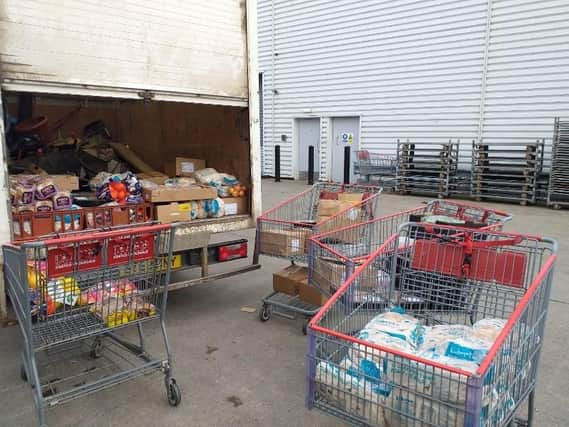Community service makes a difference in Midlothian


In Midlothian work included a memory garden for people with dementia and collecting and delivering supplies for a food bank (pictured).
Fiona Kennedy service manager for Justice Services in Midlothian said: “Our teams worked alongside community groups on a variety of projects including food and clothes banks, developing a community garden and hub, as well as gardening at a project supporting young people. This helped them get involved in their local areas and give something back .”
Advertisement
Hide AdAdvertisement
Hide AdThe annual CPO report for 2019-20 produced by public prevention agency Community Justice Scotland highlighted 1,028,000 hours of unpaid work was carried out across the country. The labour hours amount to the equivalent of £9.5m to local communities.
Unpaid work takes place all around Scotland. It allows people to repay their debt to society and build better lives for themselves, their families and communities – all of which contributes to fewer victims of crime.
A sheriff can order individuals to carry out a maximum of 300 hours of unpaid work. It’s the most common requirement of a CPO but orders can also instruct a person to address problems which contribute to their offending such as addiction and mental health needs.
Unpaid work has continued during the pandemic in different ways as adjustments have had to be made to keep people and communities safe.
Advertisement
Hide AdAdvertisement
Hide AdKeith Gardner, Head of Analysis and Improvement at Community Justice Scotland, said: “Community payback orders, which include unpaid work, take place in communities across Scotland. They allow people to repay the harm caused and address any underlying issues which led to them offending such as mental health, drug and alcohol problems.
“They keep people in the community, in jobs and connected to family and support networks in a way that is safe and managed.
“The evidence shows that sentences served in the community are more effective than a short prison term in reducing re-offending. This means fewer victims of crime and a safe Scotland for us all."